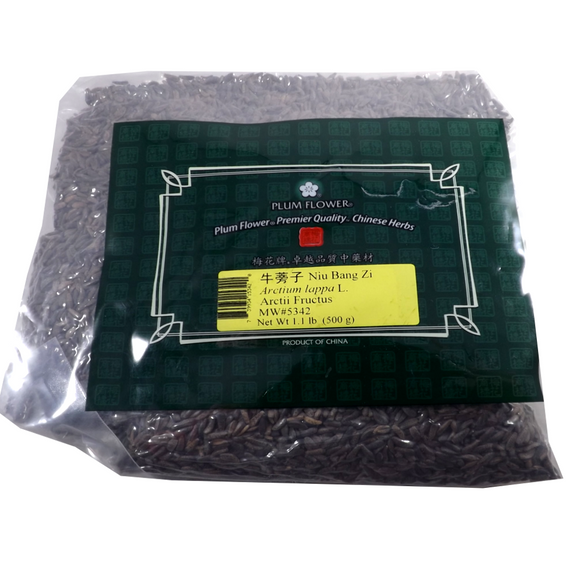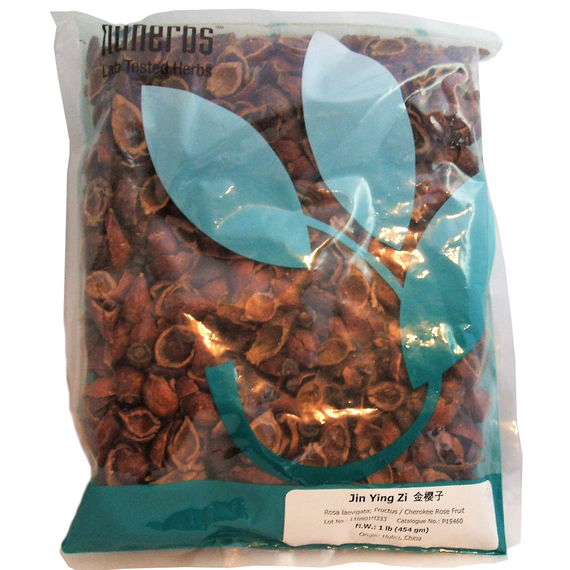Jin Ying Zi (Fructus Rosae Laevigatae) – Cherokee Rose Hip
Overview
Jin Ying Zi, also known as Cherokee Rose Fruit, is the dried ripe fruit of Rosa laevigata, a climbing shrub native to southern China. In Traditional Chinese Medicine (TCM), Jin Ying Zi is prized for its astringent properties and is primarily used to stabilize the Kidneys, secure Essence, and treat chronic issues involving leakage and discharge.
Its ability to both tonify and astringe makes it unique among herbs, particularly for addressing urinary incontinence, seminal leakage, and persistent diarrhea due to deficiency.
Key Health Benefits in Traditional Chinese Medicine
1. Secures Essence and Stabilizes the Kidneys
Jin Ying Zi is most known for its ability to stabilize Kidney Qi and prevent leakage of bodily fluids. It is commonly used to address:
-
Nocturnal emissions
-
Spermatorrhea
-
Frequent urination
-
Urinary incontinence
-
Excessive vaginal discharge
By tonifying and astringing, it strengthens the Kidney and Bladder, helping retain vital fluids.
2. Astringes the Intestines to Stop Chronic Diarrhea
Jin Ying Zi is also used to treat prolonged or chronic diarrhea, especially when caused by Spleen and Kidney Yang deficiency. It works by:
-
Strengthening intestinal walls
-
Preventing fluid leakage
-
Reducing bowel frequency
It is particularly effective in cases where diarrhea is accompanied by fatigue and cold symptoms due to deficiency.
Traditional TCM Functions
| Function | Description |
|---|---|
| Stabilizes the Kidneys | Prevents leakage of Essence and controls urination |
| Astringes the Intestines | Treats chronic diarrhea and loose stools |
| Tonifies Without Being Cloying | Strengthens the body while preventing dampness |
| Balances Astringent Effects | Used with moistening herbs to avoid excessive dryness |
Modern Research Insights
Recent pharmacological studies support many traditional uses of Jin Ying Zi:
-
Antioxidant Effects: The fruit contains flavonoids and polyphenols that help combat oxidative stress and cellular aging.
-
Anti-inflammatory Properties: Its active compounds have shown potential to reduce inflammation in gastrointestinal and urinary systems.
-
Hepatoprotective Activity: Some studies suggest it may help protect the liver from toxin-induced damage and promote detoxification.
These effects make Jin Ying Zi valuable not only in classical herbal applications but also in broader integrative health practices.
How to Use
-
Dosage: Typically 6–12 grams per day in decoction, depending on the formula and constitution.
-
Preparation: The fruit can be decocted alone or more commonly combined with complementary herbs to enhance its stabilizing and astringent effects.
-
Form: Available in whole fruit, powder, or granule form.
Jin Ying Zi is often used in formulas with herbs like:
-
Qian Shi (Euryale seed) – to strengthen the Spleen and consolidate Essence
-
Lian Zi (Lotus seed) – to tonify Spleen and stop diarrhea
-
Shan Yao (Chinese yam) – to support digestion and Kidney function
Safety and Contraindications
-
Not for Excess Conditions: Avoid using in cases of excess damp-heat or where there is active infection, as its astringent nature may trap pathogens.
-
Overuse Risks: Long-term or excessive use may cause dryness or constipation.
-
Pregnancy: Safe in moderation, but always consult a qualified practitioner.
-
Balance Astringency: In formulas, it’s typically combined with moistening herbs to avoid excessive drying effects.
Why Jin Ying Zi Deserves Attention
Jin Ying Zi is an indispensable herb in TCM when it comes to retaining fluids, treating urinary and reproductive imbalances, and managing chronic intestinal leakage. Its gentle yet powerful astringent qualities make it safe for long-term use under professional guidance.
Its well-balanced nature — neither too warm nor too cold — allows it to harmonize with a wide variety of TCM formulas, making it incredibly versatile.
Conclusion
Whether you're seeking to address issues of fluid leakage, chronic loose stools, or overall Kidney Essence depletion, Jin Ying Zi offers a trusted, time-honored solution. It supports long-term wellness, strengthens foundational organ systems, and offers a gentle, effective means of restoring internal balance.
Disclaimer: This information is intended for educational purposes and should not replace professional medical advice. Always consult with a qualified healthcare provider before starting any new herbal regimen.
Herbal Information for Rose Hips in Whole Form
Common Names: Rose Hips
Botanical Name: Rosa laevigata fruit
Channels/Meridians: Bladder, kidney, lower intestine, spleen, and lungs
Pin Yin Name: Jin Ying Zi
Other Names: Cherokee Rose Fruit, Rosefruit, Dog Rose, Haggebutt
Other Ingredients: None, nothing has been added to this product
Package Size: One Pound (1lb)
Form: Whole
Dosage: Follow doctor's instructions on how to use this herb.
Origin: China
Brand: Plum Flower
Cautions: Do not use if pregnant or nursing
About Rose Hips
The Chinese Materia Medica says that it is sour and astringent in flavor and neutral and non-toxic in properties. And it goes to 5 meridians of kidney, bladder, colon, spleen, and lung. Common functions include securing essence, reducing urination, and checking vaginal discharge.
Information on rose fruit dates back 1,500 years. Chinese rose fruits are considered one of the most important Chinese health tonics. They are highly valued by the Chinese both as a food and medicine. Rose fruit is rich in both conventional and non-conventional nutrients, including especially vitamin C, saponin glycosides, flavonoids, carotenoids, leucoanthocyanidins, catechins, and plant acids. Plant acids have strong antioxidant properties.
Rose hips have been used for centuries in traditional Chinese medicine and has a wide range of beneficial properties. It has therapeutic benefits for several medical conditions.
Product Properties: Sour, astringent, neutral
Check out our How to Use Bulk Herbs page to see how to use herbs correctly. Our web page is constantly expanding, as of today we have articles on:
- How to make salves, poultice, tinctures, teas, capsules, gargles, and foot bathes
- How to make a citrus facial splash
- Cayenne pepper: Caterpillar and aphid spray ( Natural insect repellent )
- Citrus potpourri basket
About Plum Flower Quality Herbs
Plum Flower is an established worldwide manufacturer of high-quality Chinese herbs, and innovative Chinese medicinal herbs and products. Plum Flower uses sulfur-free herbs and laboratory tests its products for contamination and heavy metals, such as mercury, lead, and pesticides.
Main Characteristics (Attributes) of Herbs
- Harvested at the proper level of maturity and correct time of the season to maximize potency.
- Free from Chlorine
- Manufactured without the use of sulphur
- Preservative Free
- Made at GMP internationally certified facilities (Good Manufacturing Practices) Quality control tests are done at the manufacturing site and at third party labs to confirm results
- Aluminum Phosphate free
- Packaged in an airtight sealed bag
- Pin Yin Names and Botanical Names are listed on the bag
- Certificate of Analysis are available upon request
- Conforms to Standards of Chinese Pharmacopeia
- No dyes, colors, or bleaching of the herbs
- We are a authorized direct distributor of Plum Flower Herbs.
- 500 gram bag size which equal anywhere from 4 to 6 cups of herbs
Chinese Traditional herbs should be regarded as a supplementary aspect to modern western healthcare, and not as a replacement. Chinese traditional herbs ( Teas ) emphasize harmony, and balance.
References
https://www.americandragon.com/Individualherbsupdate/JinYingZi.html
https://tcmwiki.com/wiki/jin-ying-zi
http://www.shen-nong.com/eng/herbal/jinyingzi.html























